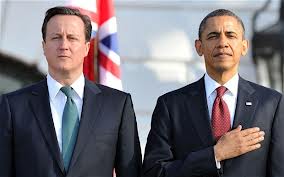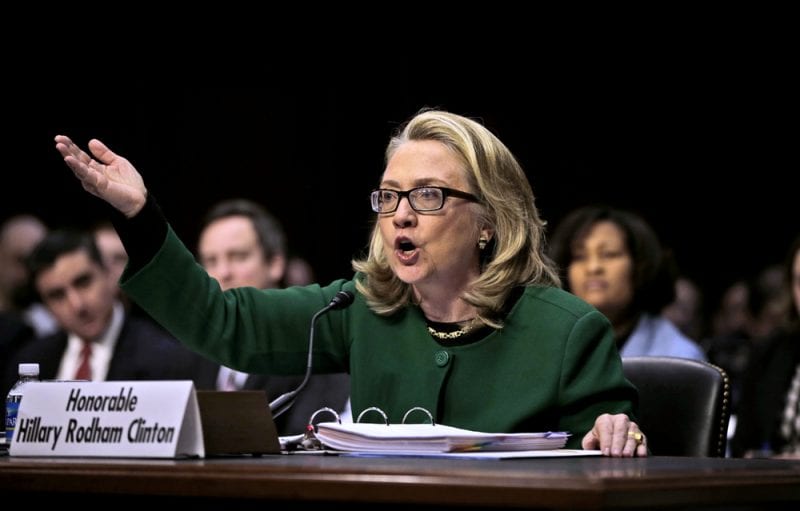There is no compelling evidence that the Syrian government has used chemical weapons against the rebel forces which seek its overthrow, and for purely military reasons, it’s highly unlikely that they have been used. Simply put, the Syrian army can kill more rebels with missiles, tanks and heavy artillery, even rifles, than with chemical agents. But even if chemical weapons have been used, a military intervention by the United States, its NATO allies, or its regional proxies, would fail the test of humanitarian intervention. First, it would exacerbate, not reduce, the suffering of Syrians. Second, it would be undertaken for concealed reasons of economic and geo-strategic gain, not to protect Syrians from chemical weapons, and neither for the promotion of multi-party representative democracy or to encourage tolerance of dissent.
Three reasons the chemical weapons case against the Syrian government is weak at best
1. Britain and Israel claim to have evidence that the Syrian army used chemical agents against armed rebels. The British evidence is based on tissue samples taken from armed rebels who claim to have been gassed by loyalist forces. To concretely make the case that the Syrian army used chemical weapons:
• The tissue samples would have to test positive for chemical agents.
• There could be no possibility the samples were tampered with.
• A direct link between the contaminated tissue and an attack by Syrian forces would need to be established.
Concerning the first point, we have nothing to rely on but the word of British authorities. Should we believe them? Britain has been implicated in attempts to concoct pretexts for military intervention with phony evidence before (see the bogus WMD claims used to justify the war on Iraq and the genocide fear-mongering pressed into service to justify NATO’s 1999 air war on Yugoslavia.)
What’s more, Britain is hardly a neutral party to the conflict in Syria, and therefore has an interest in manufacturing justifications for more open and direct meddling. That’s not to say that the tissue sample didn’t test positive, only that it would be foolhardy to suppose that a country that “sexed up” evidence to justify a war on Iraq can be trusted.
Secondly, “the samples collected by Britain may have been tainted by rebels who want to draw the West into the conflict on their side” [1], a point made by US officials.
Third, “the detection of chemical agents doesn’t necessarily mean they were used in an attack by the Syrian” army. [2] Rebels, for example, may have been accidentally exposed to chemical agents they, themselves, had in their possession.
The key point is that evidence of tissue contamination (if indeed such evidence exists) is not evidence that the Syrian army used chemical agents, since there are multiple possible ways in which the tissue could have become contaminated.
2. Once US president Barack Obama declared that the use of chemical weapons by the Syrian government was a red line that would trigger a more muscular US intervention, the Syrian calculus turned decidedly against their use (and, as we’ll see in a moment, purely military considerations had already made their use highly unlikely.) Using chemical agents against rebels would play directly into Washington’s hands, giving the bellicose superpower a pretext to intervene militarily in an open and direct fashion. This would be a disadvantage that would grossly outweigh any advantage that accrued from the weapons’ use.
Except for WWI, chemical weapons have rarely been used by any military, not because there are international agreements against their use, but because they’re largely ineffective. In fact, it could be said that many countries have agreed to forebear from using them, not out of horror over their effects, but because chemical weapons are largely useless in warfare.
Political scientist John Mueller, who invented, with Karl Mueller, the idea of sanctions of mass destruction, has examined fear-mongering over chemical, biological and radiological weapons in his Atomic Obsession: Nuclear Alarmism from Hiroshima to Al-Qaeda (Oxford University Press, 2010). Mueller makes the point that chemical agents and toxins are rarely used in warfare because they’re ineffective. They kill fewer people than conventional weapons do, and their classification as weapons of mass destruction is purely political, having more to do with stoking fear of weak countries that have them than with their actual destructive power. [3]
One of the drawbacks of chemical agents from a military point of view is that they’re easily countered. The intended targets need only don gas masks. And because soldiers in WWI were outfitted with protective gear, most of those who were gassed survived. A mere one percent of battle deaths were due to gas. By contrast, wounds from conventional weapons were 10 to 12 times more likely to be deadly. Gas made war uncomfortable, to no purpose, concluded the British, in their official history of WWI, which was why gas was retired from active use in WWII and after.
The other problem with gas is that it’s messy and unpredictable. It can blow back on the attackers (true too of biological weapons.)
And gas is terribly inefficient. A ton of sarin, delivered in the open, and under ideal weather conditions, would produce fewer casualties than conventional weapons. If the sun is out, and winds moderate, the destructive effects are reduced by up to 90 percent. In WWI it took an average of one ton of gas to produce a single casualty. Mueller correctly points out that chemical agents are so ineffective in killing large numbers of combatants that they can only be legitimately called weapons of mass destruction if pistols and machetes are too.
So why would the Syrian military use an ineffective weapon, when it has access to conventional heavy weapons that are far more destructive, especially when use of the ineffective weapon would invite the United States to escalate its intervention? It makes no sense. On the other hand, once Obama announced his red line, it made a ton of sense for the rebels to falsely claim they were gassed.
3. While an investigation by the United Nations independent commission of inquiry on Syria has found evidence that the rebels used sarin gas, no evidence has been found that the Syrian government has done the same. Commission member Carla del Ponte reported that, “We collected some witness testimony that made it appear that some chemical weapons were used, in particular, nerve gas. What appeared to our investigation was that was used by the opponents, by the rebels. We have no, no indication at all that the government, the authorities of the Syrian government, had used chemical weapons.” (Emphasis added.) [4]
An intervention would create harm
To reduce suffering, a military intervention would need to reduce harm to a greater degree than the military intervention itself would produce. No surgeon would cut off a leg to treat a fungal infection of the toe nails, and likewise no genuinely humanitarian intervention would create more suffering than it allays. Judging by previous US-led interventions undertaken for professedly humanitarian reasons, a military intervention in Syria would likely involve air strikes on Syrian military, government and even civilian facilities, with attendant civilian casualties, disruption of essential services, and massive displacement of non-combatants. According to The New York Times’ Elisabeth Bummiler, senior Pentagon officials have warned that “military intervention would be a daunting and protracted operation, requiring at least weeks of exclusively American airstrikes, with the potential for killing vast numbers of civilians.” (Emphasis added.) [5]
To be sure, an open and direct military intervention would be ardently welcomed by Syrian rebels, and their co-sectarian arms suppliers, the Turks, Saudis and Qataris. But it would kill many and make life even more miserable and uncertain for Syrians, especially those living in areas under loyalist control.
The civil war in Syria is estimated to have led to the deaths of 70,000 people so far, but US intervention in Iraq in the form of sanctions killed at least 10 times that number, while the US military intervention in the country led to the deaths of hundreds of thousands. A direct US military intervention in Syria would considerably add to the toll of dead in the Syrian conflict.
Far better to reach a political solution. But one of the reasons the Syrian civil war carries on is because the United States refuses to back a political resolution that would fall short of achieving its chief Syria foreign policy goal, namely, the ouster of Assad and his replacement by a pliant, pro-US government. A genuinely humanitarian intervention would set as its goal an end to hostilities, not the absorption of Syria into the US-Israeli camp.
Intervention wouldn’t be based on humanitarian concern
There is no reason to believe that the United States has any genuine interest in protecting Syrians from chemical weapons attacks. Washington dismissed out of hand evidence presented by the United Nations that the rebels used sarin gas, which is hardly what a government would do were it genuinely keen on protecting all Syrians from chemical attack, no matter which side of the conflict they’re on.
Significantly, US regime change policy in Syria antedates Syria’s civil war. The outbreak of the “Arab Spring” in Syria, and Damascus’s response to it, didn’t start the ball rolling on US efforts to force Assad from power. US regime change policy, linked to Damascus’s refusal to become a “peace-partner” with Israel, its alliance with Iran and Hezbollah, and its refusal to fully open its economy to US capital, existed long before the Syrian government cracked down on opposition forces. In fact, one element of US foreign policy was to encourage opposition to the Assad government, [6] that is, to foment the kind of civil unrest that eventually morphed into a full blown civil war.
Multi-party representative democracy, a tolerant attitude to dissent, and eschewal of chemical weapons, have not been relevant components of US foreign policy decision making. They have instead served as stalking horses behind which lurk the commercial and financial interests of Western banks, investors and corporations.
Indeed, Washington has shown itself willing to overlook the absence of multi-party representative democracy, to ignore an intolerant attitude to dissent, and to turn a blind eye to the deployment of chemical weapons, where US corporate interests are promoted, either directly, or indirectly through the strengthening of United States’ geostrategic position. For example, Washington and its NATO allies have adopted a tolerant attitude to the violent suppression (aided by Saudi tanks) of a Shiite rebellion in Bahrain against an absolutist Sunni monarchy, while at the same time casually dismissing the UN’s concrete suspicions that the Syrian rebels used sarin gas. Significantly, Bahrain, a paragon of free-market, free-enterprise, exploitation, is home to the US Fifth Fleet; Saudi Arabia is a source of generous profits for US oil majors and New York investment banks; and the Syrian rebels are instruments through which US foreign policy goals of regime change in Damascus are to be achieved. If US foreign policy was indeed driven by democracy-promotion, human rights objectives, and non-proliferation goals, its attitude toward Bahrain, Saudi Arabia, Qatar, the UAE, Jordan and the possibility of sarin gas use by Syrian rebels, would be very different.
Conclusion
Chemical weapons are largely ineffective in warfare, which is why, since their failure in WWI to be anything more than uncomfortably inconvenient, they’ve rarely been used. There are sound military reasons, then, why the Syrian army wouldn’t use chemical agents against armed rebels. Loyalist forces can kill far more rebels with missiles, tanks and heavy artillery.
There are also sound strategic reasons for the Syrian army to leave chemical weapons in storage. Deploying these weapons would play into Washington’s hands by providing the United States with a pretext to escalate its intervention in the Syrian civil war. It is unreasonable to think that the Syrian military would blunder into the dual error of using ineffective weapons, when more effective weapons are readily available, and when doing so would hand Washington a pretext to directly intervene militarily on the rebels’ side.
On the other hand, any force that would benefit from a more muscular US intervention on the rebels’ behalf has an interest in manufacturing evidence of the use of chemical agents by Syrian forces. This would include the rebels themselves and those of the United States’ allies that would like Washington to refashion Syria in their political or sectarian interests.
Much as intervention by the United States is sold as a humanitarian exercise, it fails the humanitarian test on two levels. First, it would create substantial harm. US military officials have warned that direct military intervention—which would take the form of US air strikes—would create massive civilian casualties. Second, US foreign policy is based on commercial, financial, and geo-strategic goals, not the promotion of multi-party representative democracy, tolerance of dissent, and anti-proliferation. This is clear from a simple examination of the countries Washington supports (satellites who are friendly to US economic and military interests, regardless of their political structure, human rights record and attitudes to WMD) and countries it opposes (countries whose economic and military policies are geared to internal interests, regardless of their political structure, human rights record and attitudes to WMD.)
In other words, a country’s attitude to US free enterprise and its willingness to submit to US domination are reliable predictors of whether the United States will treat it as an ally, not whether it practices multiparty representative democracy, tolerates dissent and eschews weapons of mass destruction.
For all these reasons the United States should not bomb Syria, and nor should it provide military, diplomatic, or any other kind of assistance to the Syrian rebels. Of course, what it should do and what it will do are very different matters, but all the same we should be clear that the chemical weapons case against Syria is a fraud, as is the idea that direct US military intervention in the Syrian conflict would have either a humanitarian basis or humanitarian outcome.
1. Adam Entous, Joshua Mitnick and Stephen Fidler, “Syria used chemical arms, Israel says”, The Wall Street Journal, April 23, 2013.
2. Ibid.
3. Fear over North Korea’s atomic bombs is similarly exaggerated. The devices the country has tested have been in the one kiloton range, one-tenth the yield of the bomb the United States dropped on Hiroshima in 1945. A one kiloton bomb set off at the center of New York’s Central Park would fail to destroy the surrounding buildings. Even if North Korea had the know-how to miniaturize a bomb to fit it atop a ballistic missile (which it likely does not), and then reliably deliver the warhead to a US target (which it hasn’t the capability to do), the damage would hardly bring the United States to its knees. The damage to North Korea in retaliatory US strikes would, however, be on an entirely different scale.
Approximately 100,000 Japanese died as a result of the atomic bombings of Hiroshima and Nagasaki, many burning to death because the cities were largely made from wood, which provided fuel for massive conflagrations. The death toll, had the cities be made from concrete, steel and glass, as modern cities are, would have been lower. Far more Iraqis died as a result of sanctions, and who knows how many Iranians and North Koreans have died because US sanctions are undermining their countries’ health care systems. Indeed, Mueller points out that sanctions intended to prevent countries from acquiring nuclear weapons have been the “cause of far more deaths than have been inflicted by all nuclear detonations in all of history.” Sanctions, more than atomic bombs, and even more than chemical and biological agents, truly deserve the appellation “weapons of mass destruction.”
4. Alex Lantier, “UN says US-backed opposition, not Syrian regime, used poison gas”, World Socialist Web Site, May 7, 2013
5. Elisabeth Bummiler, “Military points to risks of Syrian intervention”, The New York Times, March 11, 2012.
6. Craig Whitlock, “U.S. secretly backed Syrian opposition groups, cables released by Wikileaks show”, The Washington Post, April 17, 2011.




